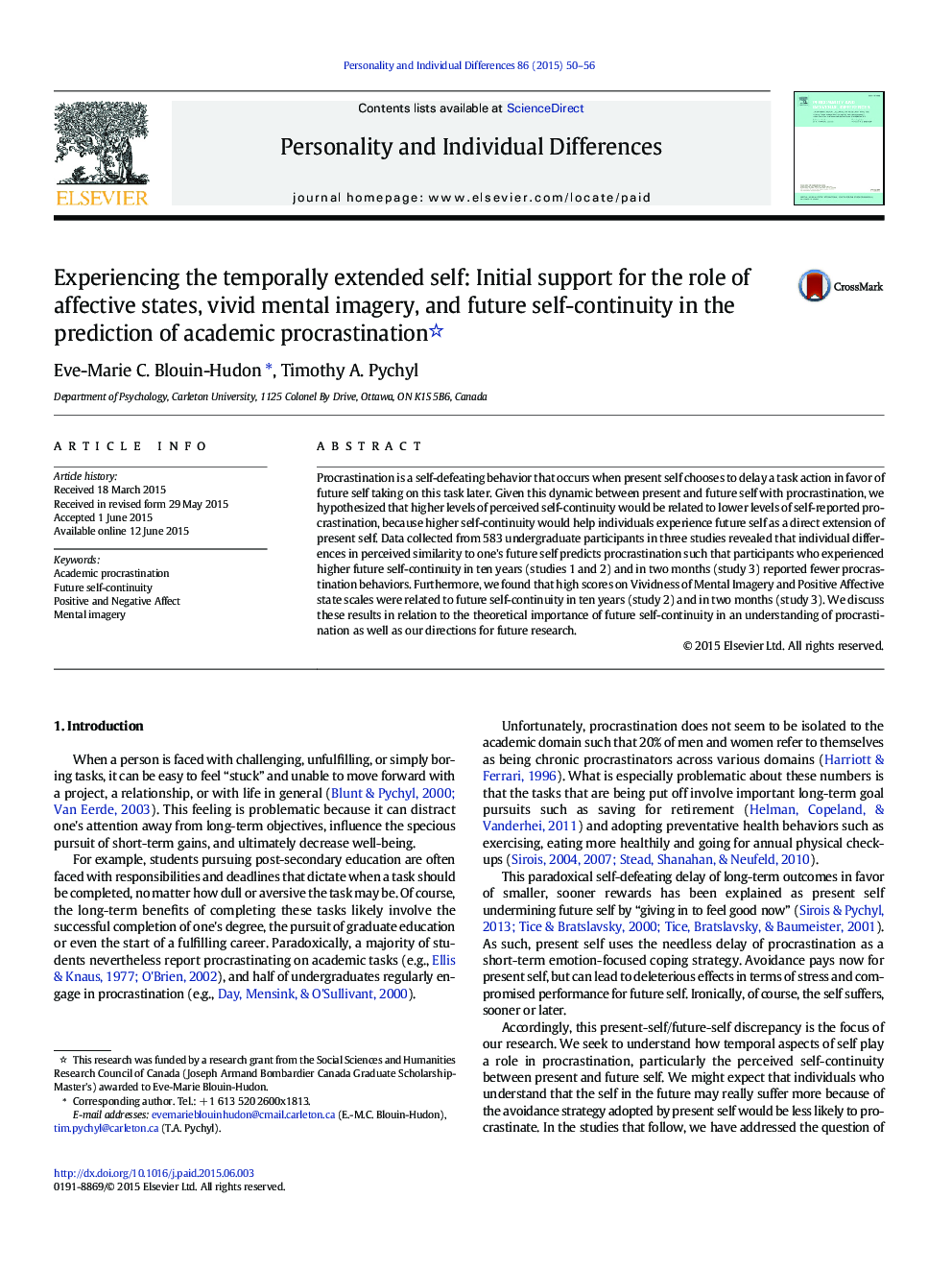| Article ID | Journal | Published Year | Pages | File Type |
|---|---|---|---|---|
| 889955 | Personality and Individual Differences | 2015 | 7 Pages |
•We tested if future self-continuity predicted lower procrastination.•We tested if mental imagery and Positive Affect predicted future self-continuity.•Future self-continuity can benefit from a broadened cognitive-affective scope.•Future self-continuity can be helpful for temporal decision-making.
Procrastination is a self-defeating behavior that occurs when present self chooses to delay a task action in favor of future self taking on this task later. Given this dynamic between present and future self with procrastination, we hypothesized that higher levels of perceived self-continuity would be related to lower levels of self-reported procrastination, because higher self-continuity would help individuals experience future self as a direct extension of present self. Data collected from 583 undergraduate participants in three studies revealed that individual differences in perceived similarity to one's future self predicts procrastination such that participants who experienced higher future self-continuity in ten years (studies 1 and 2) and in two months (study 3) reported fewer procrastination behaviors. Furthermore, we found that high scores on Vividness of Mental Imagery and Positive Affective state scales were related to future self-continuity in ten years (study 2) and in two months (study 3). We discuss these results in relation to the theoretical importance of future self-continuity in an understanding of procrastination as well as our directions for future research.
